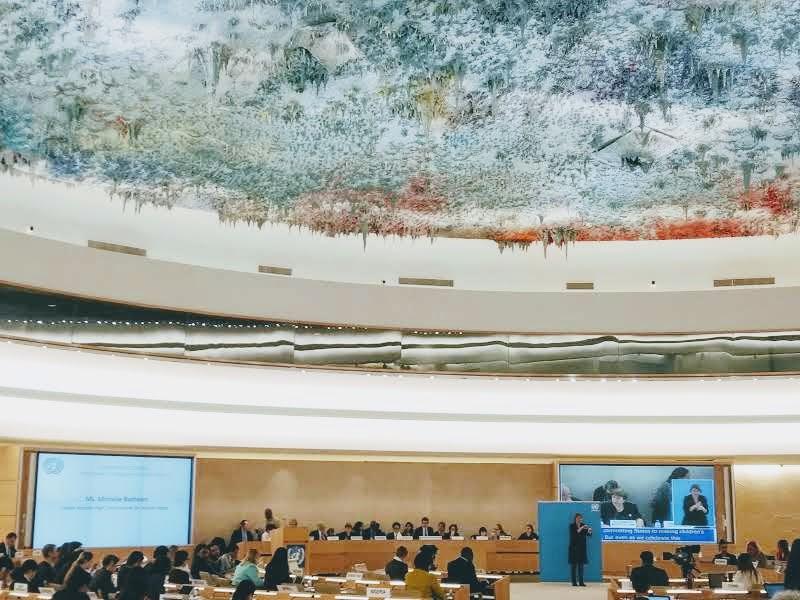
Annual full-day meeting on the Rights of the Child at the UN
On monday, the 4th of March 2019, during the 40th session of the Human Rights Council, various experts, permanent missions and civil society actors took the floor during the annual full-day meeting on the rights of the child. This year's topic was "Empowering children with disabilities for the enjoyment of their human rights, including through inclusive education’ in accordance with Human Rights Council Resolution 37/20 of February 2018. This annual debate day originates from the 2008 Human Rights Council Resolution 7/29, which decided to incorporate into its programme of work a day to discuss different specific themes on the rights of the child, including the identification of challenges in the realization of the rights of the child, as well as measures and best practices that can be adopted by States and other stakeholders.
A representative of the Fondation Apprentis d'Auteuil International attended and monitored the debate. In her opening statement, the United Nations High Commissioner for Human Rights, Michelle Bachelet, determined how the debate would unfold by holding that ‘the only way to deliver inclusive and equitable education for all by 2030 is to ensure that children with disabilities are a central focus of national plans and actions’. Following the opening statement, three panellists consecutively addressed a large number of permanent missions and civil society organisations.
The first panellist, Jorge Cardona, member of the Committee on the Rights of the Child, highlighted how the realization of the rights of children with disabilities contributes to their empowerment. He also stressed that children with disabilities are in a situation of double vulnerability, by virtue of being children and by virtue of being disabled. Finally, he underlined that the realization of all children's rights is the very basis for their empowerment, and that it is only by recognizing and respecting their rights that their autonomy as a subject of law will be recognized.
The second panellist, Catalina Devandas Aguilar, Special Rapporteur on the rights of persons with disabilities, addressed the obstacles faced by children with disability to the full enjoyment of their rights and a joyful childhood. Among other things, she stressed the need for the inclusion of children with disabilities beyond mere integration, as well as the need for children's participation in respecting their rights through enabling mechanisms and environments. She concluded by reiterating that it was vital to end the invisibility of children with disabilities so that they can be free, dream and proud of who they were.
The third panellist, Dumitriţa Cropivnitchi, a Children’s Rights Advocate in Moldova for the NGO Lumos, shared a moving account of her childhood when she was five years old and interned a specialized institution for children with disabilities in Moldova. The institution was segregated from the rest of the community and full of unknown people. She had to share her room with 11 other children and her clothes with dozens of others. The parents were replaced by educators who also looked after 25 other children. Her life no longer belonged to her, but was instead governed by the rules of the institution… She concluded her testimony by questioning the public on the number of children with disabilities living in an institution marginalized from the rest of society due to the lack of inclusive institutions and appropriate support. Following these interventions, the chairperson welcomed comments from State delegations, NGOs and national human rights institutions.
During the second session of the annual debate, delegations and members of civil society were able to share their good practices on the inclusion of children with disabilities in education settings as well as question the panellists, i.e. María Soledad Cisternas Reye, Special Envoy of the Secretary-General on Disability and Accessibility, Afshan Khan, UNICEF Regional Director for Europe and Central Asia, and Bushra Zulfiqar, Education Director at Save the Children Bangladesh.
Finally, during the day, children were also given the opportunity to be heard, namely through the screening of a video featuring two children with disabilities, questioning States on their policies in terms of inclusion and non-discrimination of children with disabilities. The children were also able to express themselves through a second video presenting the 10 principles of good treatment of children with disabilities.